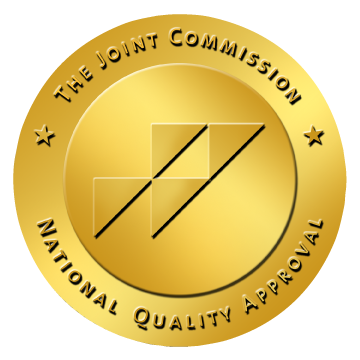It seems like a fairly straightforward question—can alcoholism cause mental illness? However, the answer is not quite as simple as you’d expect, partly because it’s hard to distinguish between a mental disorder or symptoms caused by alcoholism and a mental disorder that pre-dated the alcoholism.
Another gray area exists within the question as well—do alcohol induced mental disorders go away with abstinence?
Here we’ll explore the question in more depth.
First, it’s important to clarify how mental illness is defined. “Mental illness” is a broad term referring to disorders that affect mood, thinking, and behavior and can include anything from depression to schizophrenia. Symptoms of the disorder are ongoing and may require treatment for your entire lifetime.
Often, prolonged alcohol use or binge drinking can cause symptoms of mental disorders, but those symptoms go away with abstinence. In these cases, symptoms manifest, but no mental disorder is diagnosed since the symptoms are not ongoing. However, if the person with the symptoms drinks continuously, symptoms continue, which makes it difficult to determine whether a mental disorder exists or not.
Cases like these can turn into a vicious cycle. For example, a person with alcoholism may feel depressed when they drink or the next day when they have a hangover, but they start drinking again to “treat” the depression. This cycle then continues.
Some research suggests that about 50% of those suffering from a mental disorder abuse drugs or alcohol. This means that the mental disorder existed before the substance abuse began. However, if someone was never diagnosed with a mental disorder but exhibits symptoms of the disorder during substance abuse, it can be difficult to determine if the disorder was pre-existing or not.
In these cases, during treatment, the person will be asked numerous questions about their symptoms prior to substance abuse. Family members may also provide input.
When a mental health disorder is determined to be pre-existing, treatment is provided for both the mental health disorder and the substance abuse disorder.
It has been shown in studies that several disorders can occur because of the overuse of alcohol or other substances. However, many of these disorders will no longer be present after a period of abstinence.
For some people, depressive symptoms can occur while under the influence of alcohol. These symptoms of alcohol-induced depression persist as long as alcohol is being abused, as well as during periods of withdrawal for as long as the withdrawal lasts. However, if the person stops drinking alcohol, the symptoms will go away within a few days to a month, depending on the length of the withdrawal.
If symptoms do not go away, it may be determined that the depression was a co-existing condition with the alcoholism, meaning that the person suffers from a depressive disorder not caused by alcohol. The depressive disorder then needs to be treated on an ongoing basis.
Anxiety disorder is characterized by episodes of heightened anxiety and panic attacks. Similar to depression, alcohol can cause these anxiety symptoms when it’s abused. However, these symptoms tend to develop over time in people who drink excessively and are generally worse during withdrawal. But like depressive symptoms, anxiety symptoms go away after a certain period of abstinence, and if they do not, an anxiety disorder is likely present and needs to be treated.
Bipolar disorder involves extreme mood swings from mania or euphoria to depression. In people with alcoholism, there is a high rate of co-existing bipolar disorder. The relationship between the two is not yet well understood, but it’s thought that alcohol abuse can trigger the symptoms of an existing bipolar disorder that was previously not symptomatic. However, mania and depressive symptoms are also common with alcohol intoxication in general, making diagnosis of an actual bipolar disorder difficult.
Often, an accurate diagnosis cannot be made until a period of abstinence occurs and the symptoms remain or go away.
Psychosis is characterized by delusions and hallucination. Alcohol is a mind-altering substance, so these symptoms are not uncommon during intoxication and withdrawal, even if the person affected is not a chronic user of alcohol. For people with an alcohol use disorder, these symptoms can occur as long as the alcohol use continues, but will generally go away after a period of abstinence. It’s important to note, however, that people with a pre-existing psychosis are at higher risk of developing a substance abuse disorder. Their symptoms will likely increase for the duration of active substance abuse.
Common sleep disorders include insomnia and daytime sleepiness, both of which can be induced by alcohol. Interestingly, many people use alcohol to induce sleep, as alcohol has a sedating effect. However, after an initial period of sleep, alcohol can disturb sleep and cause nighttime waking and insomnia. Alcoholism can make these sleep disturbances chronic.
During withdrawal and subsequent periods of abstinence, however, people often have trouble falling asleep and develop chronic insomnia. This commonly leads to relapse as people turn to alcohol to induce sleep.
Wernicke-Korsakoff Syndrome (WKS) is a rarer disorder caused by a lack of vitamin B1 and is characterized by memory loss. Those suffering from alcoholism often have a B1 deficiency, thus potentially leading to WKS.
WKS has two stages:
WKS is not curable but can be treated with B1 supplements, hydration, and, for alcohol induced WKS, abstinence. However, long-term memory issues may remain.
As you can see, the original question has a complicated answer. Much is still unknown about the effects of alcohol on mental health long-term, but it can certainly aggravate the symptoms of pre-existing mental health disorders and cause symptoms of certain disorders during active abuse. For those without pre-existing mental health disorders, symptoms can go away with abstinence. For those with pre-existing conditions, abstinence can reduce symptoms and the mental health condition can be treated more effectively.
If you have a problem with alcohol, it’s important to understand how it can affect you both mentally and physically and to seek help. It is possible to recover and live a healthier life.
